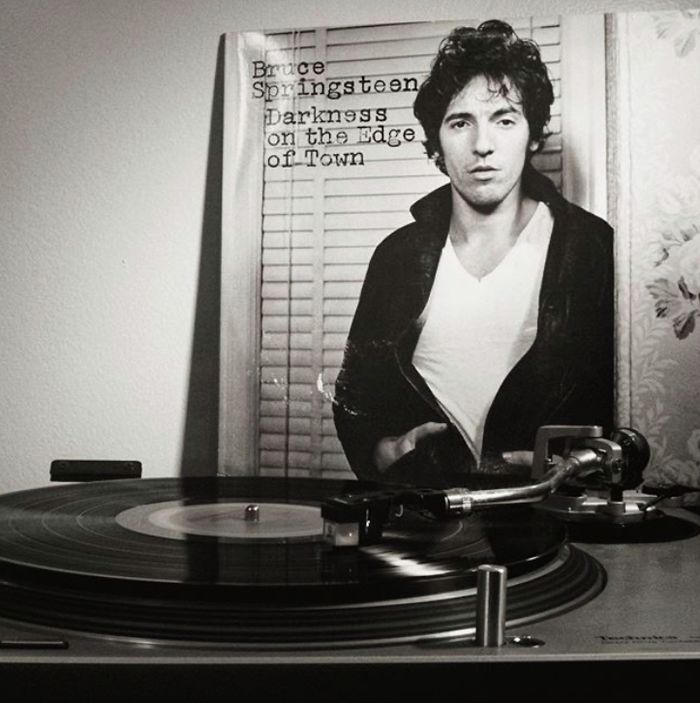John Lennon and the Strength of Simplicity
In honour of his 80th birthday, Scarlett Dargan reflects on John Lennon’s powerful musical legacy and evaluates some of his greatest hits
Being unable to put your feelings into words is a frustrating feeling, and one of the main reasons we turn to art. What was so special about John Lennon was his ability to express in profoundly simple words things the rest of us can only feel. Through his lyrics, Lennon tackled extensive themes, from the complexity of raw human emotion to his developing commitment to pacifism. He articulated these themes with a beauty, vulnerability, and a poetic effortlessness that no other musician can emulate. Below are four landmarks of Lennon’s artistic journey, which demonstrate his power to delicately simplify the world even when it seems unfathomably scary and chaotic.
‘Help!’
The Beatles’ fifth LP opens with Lennon’s desperate plea: “Help! I need somebody”. Immediately, ‘Help!’ marks a shift in Lennon’s song-writing; light-hearted musings about teenage love-affairs surrender to increased emotional vulnerability, as Lennon grapples with worldwide fame. Whilst the song is primarily about Lennon’s struggle with becoming, as he controversially described, “more popular than Jesus”, perhaps his desire to “get my feet back on the ground” was not entirely ill-placed. The song is relatable as it nostalgically glances back to a time of juvenile carelessness, a time when “I never needed anybody’s help in any way”. The jaunty melody, harking back to the freedoms of childhood, juxtaposes with the lyrics (loaded with the weight of adult responsibility). When Lennon desperately asks “Won’t you please, please help me?” we all know the feeling – a desire to briefly escape from the obligations of adulthood, and to re-experience some of our youthful recklessness.
‘All You Need is Love’
The Beatles’ manager, Brian Epstein, described ‘All You Need is Love’ as “an inspired song… The nice thing is that it cannot be misinterpreted. It is a clear message saying that love is everything.” The track was written for the international One World television broadcast, with Lennon purposefully crafting the lyrics using simplistic language which expresses a universalist agenda of global peace that transcends national barriers. As the Cold War turned ‘hot’ in Vietnam, the track is incredibly profound in Lennon’s condemnation of those efforts to enforce ideological systems and ‘save’ countries by military intervention, arguing “There’s no one you can save that can’t be saved”. As global conflicts wore on and political leaders grappled with globally divisive problems, Lennon believed that he had the answer, and not only that, but “It’s easy” – “All you need is love.” An oversimplification, perhaps, but Lennon’s musing reminds us that at a time when ideological rivalry created, quite literally, a divided world, a human need for love unites us all.
‘Imagine’
One morning in 1971, Lennon sat down at his piano and wrote a love song that extended far wider than even his previous triumphs: a love song for the entire human race, and perhaps the most beautiful revolutionary anthem ever written. Released at the height of the anti-war movement of the early 70s, the track was an expression of what many people desired, but only Lennon could express with such striking simplicity. His suggestions of a world with “no religion”, “no heaven”, and “no countries” are intrinsically radical, yet the end result is as simple as a lullaby, a commanding ode to human togetherness. Lennon reflected the longing for peace and unity within a global community exhausted by conflict, singing: “You may say I’m a dreamer, but I’m not the only one” – and he certainly wasn’t, with former US president Jimmy Carter stating that across the 125 countries he had visited, ‘Imagine’ was “used almost equally with national anthems”. ‘Imagine’, Lennon doesn’t command but merely asks, and the world did.
‘Happy Xmas (War is Over)’
In December 1969, billboards appeared overnight in 12 major cities. In black and white, they stated, “WAR IS OVER! If You Want It.” Two years later, those simple words reappeared in Lennon’s Christmas anthem. Demonstrating the endurance of his wonderfully cynical Liverpudlian humour, Lennon claimed he wrote the track as he was “sick of ‘White Christmas’”. Yet, in a rather more powerful statement, an increasingly political Lennon sings of the power of human unification, urging the listener “if you want it” you can end global conflict. And could there be a more poignant way to exemplify the inhumanity of war than a children’s choir singing that the best Christmas gift the world could desire is that “war is over”? This contrast of the innocence of childhood with the depravity of a war the global community was increasingly seeing as unwinnable, is completed with the humblest holiday optimism for the coming year – “Let’s hope it’s a good one / Without any fear.”
Lennon was many things: a lyrical genius, a radical activist, frustratingly contradictory, and undeniably enigmatic. Above all, he was an artist, and as an artist he described his task: “to try and express what we all feel. Not to tell people how to feel. Not as a preacher, not as a leader, but as a reflection of us all.” Lennon’s unparalleled ability to simply articulate raw human emotion allows his music to transcend national, political and generational divides; it is through this simplicity that Lennon became not just the voice of a generation, but the voice of us all.
 News / Colleges charge different rents for the same Castle Street accommodation2 March 2026
News / Colleges charge different rents for the same Castle Street accommodation2 March 2026 News / King’s hosts open iftar for Ramadan3 March 2026
News / King’s hosts open iftar for Ramadan3 March 2026 Theatre / Lunatics and leisure centres 4 March 2026
Theatre / Lunatics and leisure centres 4 March 2026 News / Angela Merkel among Cambridge honorary degree nominees27 February 2026
News / Angela Merkel among Cambridge honorary degree nominees27 February 2026 News / News in Brief: waterworks, wine woes, and workplace wins 1 March 2026
News / News in Brief: waterworks, wine woes, and workplace wins 1 March 2026








